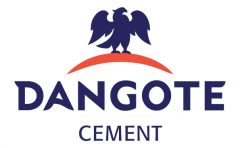The National Bureau of Statistics (NBS), on Wednesday released Consumer Price Index for February 2018 showing that inflation dropped to 14.33% year-on-year from 15.13% in January, the 13th consecutive drop and the biggest so far since January 2017.
It came 33 bps and 28 bps below Cordros Capital’s forecast of 14.66% YoY and Bloomberg compiled average estimate of 14.61% YoY respectively.
On its part, Meristem Securities had envisaged a drop in inflation to 14.71% YoY, which it said implies a 2.80pts increase in the Consumer Price Index to 251.2pts.
On a month-on-month basis, it moderated to 0.79% from 0.8% in January, helped YoY and MoM by the huge cut in food inflation, which fell from 18.92% in January to 17.59%, representing a drop by 1.33%. MoM, food inflation fell to 0.85%; even as core inflation closed at 11.7% from 11.1%.
Inflation rate for the period under review, according to the bureau was driven mainly by increases “seen in prices of fuel and lubricants for personnel transport equipment, maintenance and repair of personal transport equipment, narcotics, vehicle spare parts, passenger transport by air, clearing, repair and hire of clothing, hospital services, domestic services and household services and glassware, tableware and household utensils.”
Urban inflation for the month fell from 15.56% to 14.76%; while rural inflation rate dropped to 13.96% from 14.76% in January.
MoM, the drop in urban inflation was sluggish at 0.01% from 0.83% to 0.82% in February, even as rural inflation jumped 0.77%, same as was recorded in the prior month.
“The corresponding 12-month year-on-year average percentage change for the urban index is 16.24% in February 2018. This is less than 16.55% reported in January, while the corresponding rural inflation rate in February 2018 is 15.64% compared to 15.89% recorded in January,” the NBS further noted.
As has become the norm, the highest increases continue to be in prices of bread and cereals; vegetables; potatoes, yams and other tubers; coffee, tea and cocoa; milk, cheese and eggs; as well as fish.
On a state-by-state basis, the bureau said inflation was at its peak nationwide in Kebbi, 18.6% year-on-year; followed by Bauchi, 17.68%; and Yobe, 17.65%; while Delta recorded the slowest at 11.74%; followed by its neighbor- Edo with 12.33%; and Kogi, 12.74%.
MoM, Kebbi was the highest in February at 1.9%; ahead of Yobe, 1.72%; and Rivers, 1/58%; while Ebonyi and Nasarawa recorded price deflation on an all-item basis during the period.
Food inflation was highest year-on-year in Kwara, 23.52%; ahead of Yobe, 22.37%; and Kebbi, 21.82%; even as Bauchi with 12.82% recorded the slowest price growth for the month of February, followed by Anambra, 13.53%; and Benue, 13.83%.















